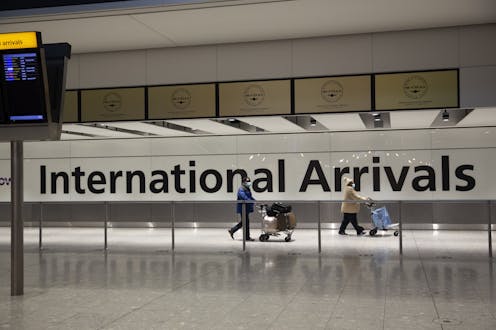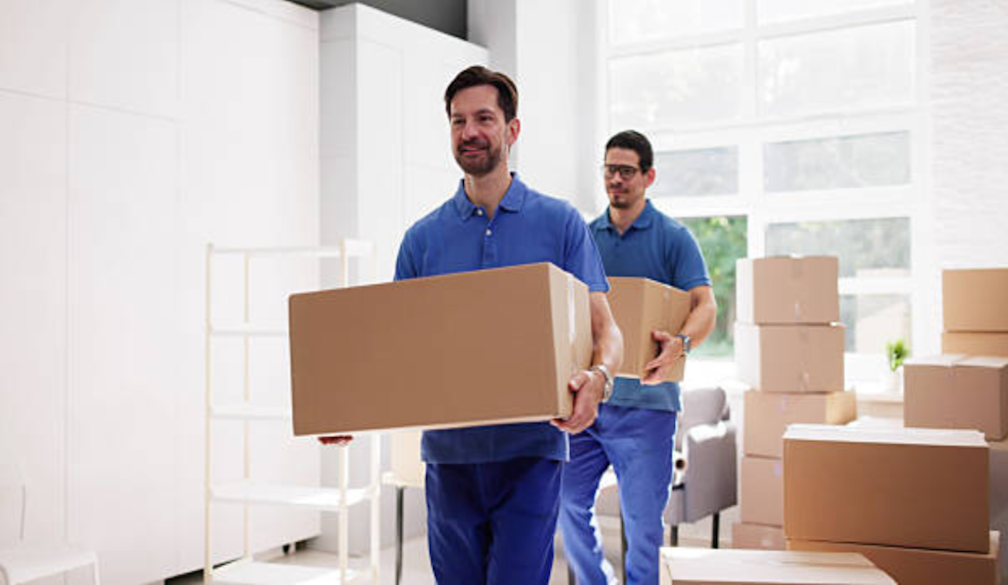Home quarantine for vaccinated returned travellers is extremely low risk, and won't damage their mental health
- Written by Gregory Dore, Scientia Professor, Kirby Institute; Infectious Diseases Physician, St Vincent's Hospital, Sydney, UNSW

Many thousands of people need to return to Australia, and many at home wish to reunite with partners and family abroad.
A move away from a one-size-fits-all approach to quarantine is a way to make this happen — including home quarantine for vaccinated returnees.
The federal government implemented home quarantine over a short period in March 2020, before switching to mandatory hotel quarantine for returned residents and other incoming passengers.
But the considerably changed circumstances — most importantly, access to effective vaccines — calls for its reintroduction despite caution among politicians and the community.
The low rate of positive cases, and proven effectiveness of further safeguards to limit breaches, make home quarantine a persuasive strategy.
It’s worth remembering people who contract COVID, and their contacts, have successfully self-isolated at home since the pandemic began.
How will we make sure it’s safe?
There are several protective layers which would ensure extremely limited risk of home quarantine for fully vaccinated returned overseas travellers.
The first is requiring a negative COVID test within three days of departure, which is currently a requirement for all returnees.
The second is COVID vaccination. Recent studies indicate full vaccination provides 60-90% infection risk reduction. In cases where fully vaccinated people do get infected, these “breakthrough cases” are less infectious.
It’s also important to test returnees in home quarantine. A positive case would trigger testing of any contacts and may extend self-isolation.
Also, high levels of testing in the broader community can ensure early detection of outbreaks, enabling a rapid public health response to limit spread, if it did leak out of home quarantine.
Read more: The crisis in India is a terrifying example of why we need a better way to get Australians home
The risk would be extremely low
Data from hotel quarantine in New South Wales, which takes around half of returned travellers in Australia, suggests home quarantine for fully vaccinated returnees would likely present an extremely low risk.
In 2021, NSW has screened around 4,700 returnees a week, with the proportion of positive cases detected during quarantine averaging around 0.6%.
From March 1, since vaccination has become more accessible, only eight of 406 positive cases were fully vaccinated.
Unfortunately we don’t have the overall data on how many returnees were fully vaccinated, but even if only 10-20%, this would equate to a positive rate of around 6-12 per 10,000 among the vaccinated. This is considerably lower than the overall rate of 66 COVID cases per 10,000 since March 1.
If home quarantine was initially restricted to fully vaccinated returnees from countries with low to moderate caseloads, the rate would be lower again, probably less than five per 10,000.
If NSW increased their quarantine intake by taking an extra 2,500 per week from this population into home quarantine, it would equate to maybe a few positive cases per month, compared to around 120 cases per month in hotel quarantine. As vaccination uptake increases, this capacity could be expanded, with reduced hotel quarantine requirements.
Will people comply?
The enormous desire for stranded Australian residents, overseas partners and family of residents in Australia to return and reunite should ensure a high level of compliance with home quarantine.
Home quarantine has been successfully implemented in other countries with elimination strategies such as Taiwan and Singapore. Taiwan’s system was deployed rapidly and has 99.7% compliance. Singapore uses a grading system to enable lower-risk returnee residents to do seven days in home quarantine, with a negative test required for release on day seven.
Two major reviews of the hotel quarantine system — the Victorian government-commissioned Coate report, and the national review of hotel quarantine — recommended implementing home quarantine with monitoring technology, such as electronic bracelets. Their recommendations were made prior to the approval of vaccines.
Recent data suggests the current hotel quarantine system has harmful effects. Research published in the Medical Journal of Australia in April found mental health issues were responsible for 19% of all emergency department presentations among people in NSW hotel quarantine. It’s highly likely home quarantine would be more beneficial for the mental health of returnees.
What are the barriers?
Issues which would need to be sorted through include:
methods for determining how risky different countries are
how returnees can prove they’ve been vaccinated
how we would test returnees and home-based contacts, and how frequently
and how long home quarantine would be for.
But none of these are insurmountable, and small-scale home quarantine already exists in the ACT.
Health authorities could ensure returnees can collect their own COVID testing samples, for example by doing nasal swabs or collecting saliva themselves. This would reduce contact with health workers.
Home quarantine is undoubtedly being considered by major Australian COVID policy committees, along with other measures to enable a larger number of returnees and to increase the safety of the quarantine system.
Australians’ excessive caution continues to have direct consequences for the well-being of many thousands of stranded Australian residents, together with non-resident partners and family members desperate to return.
It’s time to change this situation and make their human rights a public health priority.
The author would like to thank John Kaldor, Esther Rockett, and Liz Hicks for their input.
Authors: Gregory Dore, Scientia Professor, Kirby Institute; Infectious Diseases Physician, St Vincent's Hospital, Sydney, UNSW



















